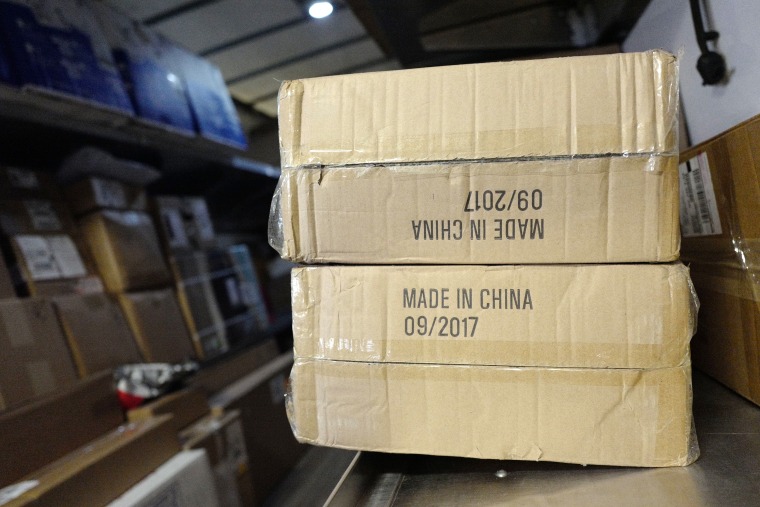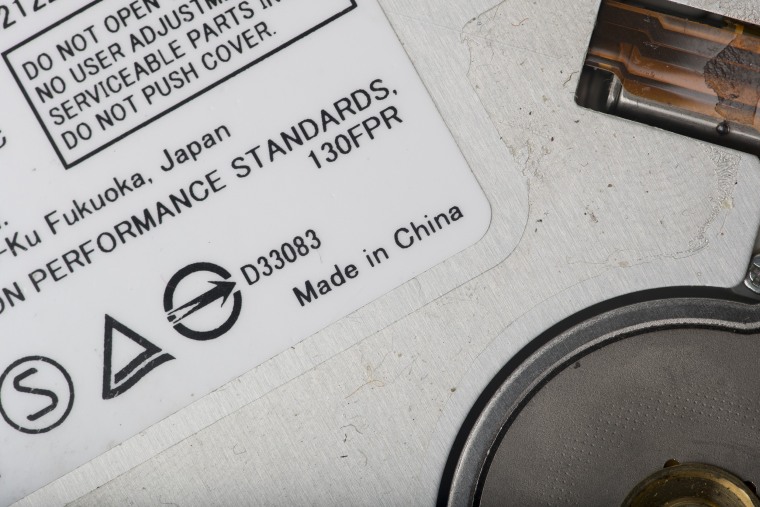President Donald Trump just suggested a policy that would strip consumer goods from the shelves of American stores, jeopardize hundreds of thousands of U.S. jobs and spark a meltdown across the global economy, according to experts.
Following North Korea's suspected sixth nuclear test, Trump tweeted Sunday that he was considering stopping all trade with any country doing business with the secretive regime.
This would be a drastic measure of unprecedented proportions — so much so that many analysts dismissed it as hollow hyperbole. But what if we took Trump at his word and assumed he was genuinely considering following through on this threat?
"This gets pretty wild pretty fast," according to Taylor Griffin, a former Treasury spokesman and White House staffer under President George W. Bush. In terms of the economic impact, Griffin said that "apocalyptic is probably a good way to describe it."
North Korea may be isolated but it still trades with more than 100 nations, including Russia, India and most importantly China. Trump was suggesting that the U.S. could stop trading with all of them.
"We're talking about a global recession and devastation for the global economy"
His tweet was widely regarded as a thinly veiled threat aimed at coercing China to do more to squeeze North Korea. Around 90 percent of Pyongyang's trade is with Beijing and Trump has often said the Chinese should take more steps to rein in Kim Jong Un's nuclear ambitions.
During his campaign and in office, Trump has criticized what he says are China's unfair trade practices and threatened Beijing with what analysts say would amount to nothing short of a trade war. But whereas he suggested slapping hefty tariffs before, stopping trade altogether would be a far more extreme approach.
His comments angered China, with Foreign Ministry spokesman Geng Shuang labeling them "unacceptable" and "unfair" on Monday.
But stopping all trade with China — not to mention other countries such as Mexico, France and Saudi Arabia, which all trade with North Korea — would not only cause pain in Beijing.
"We're talking about a global recession and devastation for the global economy," according to Marianne Schneider-Petsinger, the U.S. geoeconomics fellow at Chatham House, a think tank based in London.
"Cutting off trade with China would trigger a trade war and a protectionist spiral that would have adverse consequences for the entire world," she said. "China could also retaliate ... it's unlikely they would just sit on the sidelines."
Americans would likely feel these effects as acutely as anyone. China is America's largest trading partner and goods and services between the two nations totaled an estimated $648.2 billion last year.
According to the Department of Commerce, exports to China alone supported an estimated 911,000 U.S. jobs.
Furthermore, countless products consumed across America contain parts from China or are assembled by Chinese workers — Apple's iPhone being one of the most obvious examples.
"If bilateral trade between the U.S. and China goes away, American store shelves are empty," Griffin said. "You're not going to have anything to sell in Walmart … There'll be no iPhone 8 for you."

In theory it could be possible to move the supply chain away from mainland China and to another location such as Taiwan but that would be expensive.
The crisis might also create complex macroeconomic conditions that could see a spike in U.S. interest rates — meaning spiraling costs for loans and mortgages.
"When that happens it would suddenly become a brake on the economy," Griffin said."There would be ripple effects everywhere. People talk about a butterfly flapping its wings and causing a tornado on the other side of the world. This wouldn't be a butterfly — it would be a 747 taking off."
He added: "I think the overall thing is that the American people will get a very painful lesson in economics."
It may sound outlandish but in theory Trump has the power to do this. The International Emergency Economic Powers Act of 1977 gives the president licence to impose trade restrictions in the face of an "unusual and extraordinary threat."
However, the president has a track record of failing to follow through on his bold statements — such as promising to label China a currency manipulator.
But this presents a problem in and of itself.
If other nations believe that the words of the president are hollow, then the power of those words become severely diminished.
"I don't think this threat is credible," Schneider-Petsinger at Chatham House said. "This has huge implications for the credibility of the U.S. in terms of leverage, if Trump is creating these red lines and not following through."

